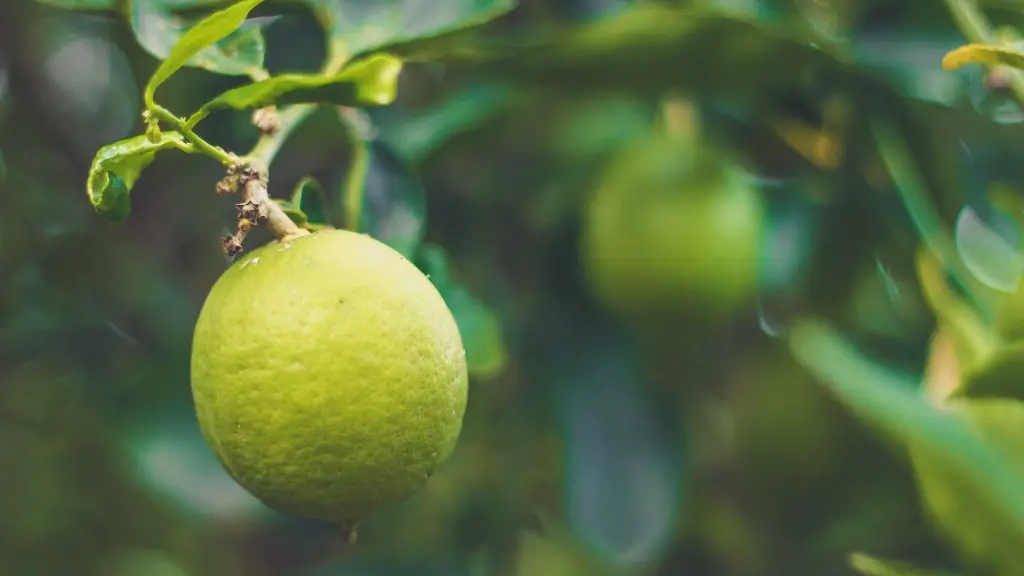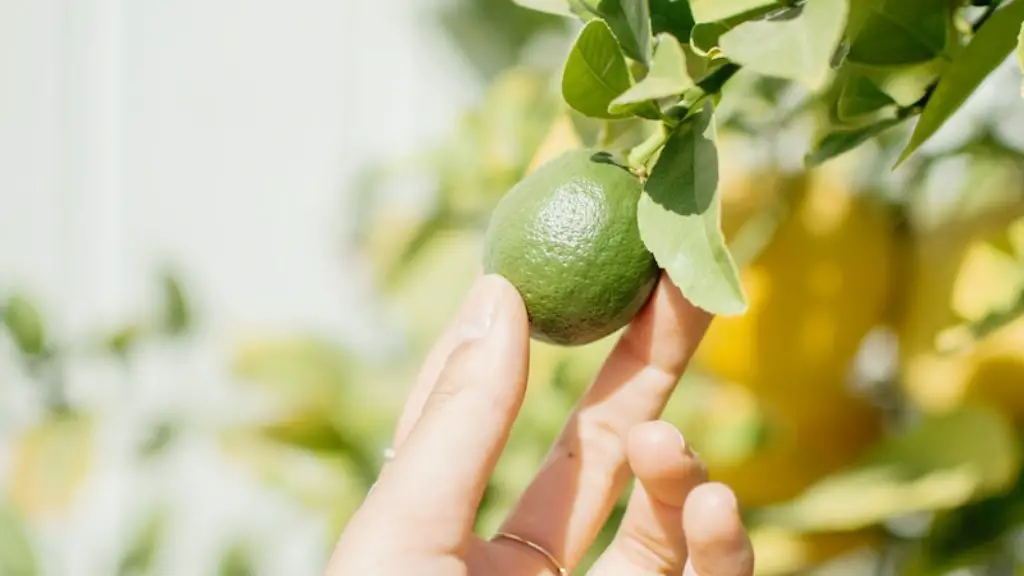Lemon trees are widely cultivated for their numerous benefits, including the fact that they are incredibly resilient, can survive in many climates, and produce delicious fruits. But how long does it take for a lemon tree to fruit? The answer is actually quite complex, and the time it takes for a lemon tree to bear fruit depends on a number of factors, from the variety planted to the environment it is in, and even the age of the tree.
The first factor to consider when determining how long it takes for a lemon tree to bear fruit is the variety that has been planted. Different types of lemon trees will produce fruit at different rates and in different kinds of climates. If a lemon tree of the right variety is planted in a warm climate, it should bear fruit and begin flowering within one to two years.
Next, the age of the lemon tree should be taken into consideration. Younger lemon trees will take longer to bear fruit than older ones, so if the lemon tree is a seedling, it may take anywhere from three to five years before it begins to produce a good crop.
The environment will also influence the time it takes for a lemon tree to bear fruit. In cooler climates, it may take up to three or four years for a lemon tree to begin producing. Trees planted in heavier soils or in areas where there is frequent rain or storms could take even longer – up to five years before the tree starts to bear fruit.
Additionally, if the tree is planted in a location that is shaded too heavily, the process of fruit bearing could be delayed. Too much shade can reduce the number of sun hours that the tree receives, which in turn slows its growth and decreases its chance of fruiting.
It is also important to note that lemon trees are typically not self-fertile, which means they need help from bees or other insects to pollinate the flowers. If this process is not happening regularly or if pollinators are not present, it can take even longer for the tree to bear fruit.
Finally, lemon trees that are regularly pruned or trimmed can also experience delays in fruiting. Pruning or trimming of lemon trees is done to help control the size of the tree and its shape, but it can also cause delays in the fruiting process if done too often or too heavily.
Factors That Impact a Lemon Tree’s Fruiting
When determining the overall answer to the question – how long does it take for a lemon tree to fruit – there are a variety of factors that can influence the answer, depending on the variety of tree planted and the environment it is being grown in. The variety of lemon tree plays a major role, as some varieties fruit sooner than others. Additionally, the environment plays a role in the time it takes for a lemon tree to bear fruit, with cooler climates potentially delaying the process.
When the tree is planted in a location that does not get a lot of sun, or if it is shaded too heavily, its growth rate can be slowed and thus it may take longer for the tree to begin producing fruit. Additionally, pollination must occur for a lemon tree to fruit, and if this is not happening regularly due to a lack of pollinators, it can take even longer for the tree to bear fruit.
Finally, lemon trees that are over pruned or trimmed can also experience delays in fruiting, as it can slow the growth rate of the tree and reduce the number of sun hours it receives. Ultimately, all of these factors can contribute to the time it takes for a lemon tree to fruit, making it a complex answer that should be taken into consideration when caring for lemon trees.
Tips for Growing Lemon Trees
When attempting to grow lemon trees, there are a few key points to keep in mind in order to ensure that they fruit in a timely manner. For starters, it is important to select a lemon tree variety that is suited for the climate in which it is being grown. Additionally, the location where the tree is planted should get full sun and be away from sources of shade that could potentially slow its growth rate.
Pollination is also essential for the fruiting process, so if the tree does not receive enough pollination on its own, assistance may need to be provided. Finally, lemon trees should not be over pruned or trimmed, as this can also slow their growth rate and delay the process of fruiting.
Caring for a Lemon Tree
When it comes to caring for a lemon tree, there are many steps that must be taken in order to ensure that it fruits and produces delicious and plentiful lemons. To ensure the health of the tree, it is important to perform regular pruning and trimming to help maintain the size and shape of the tree, and prevent it from becoming too tall. Additionally soil fertility should be monitored and nutrients added, if necessary.
Finally, it is important to provide adequate water to keep the tree hydrated, as this will also help promote growth and fruiting. Irrigation systems and/or hand watering should be set up to give the tree continual access to water. When following these steps and taking into account the factors that influence the time it takes for a lemon tree to fruit, a thriving lemon tree should not be far away.
Common Issues with Lemon Trees
Although citrus trees are generally hearty and resilient, there are a few common issues that can arise during their growth. The most common issue is nutrient deficiencies in the soil, which can be corrected by adding nutirents or supplements as necessary. Additionally, lemon trees can be prone to pest and disease issues, so it is important to inspect the tree regularly to catch and treat any potential issues.
Another common issue that can arise is a delay in fruiting due to environmental elements, in particular too much shade or too little sun. Too much shade can slow the growth rate of the tree and reduce the number of sun hours it receives, thus delaying the process of fruiting. Lastly, pollination can also be an issue, as most lemon trees need to be pollinated by bees or other insects in order to set and bear fruit. Therefore, if pollinators are lacking, this can also result in a delayed fruiting process.



